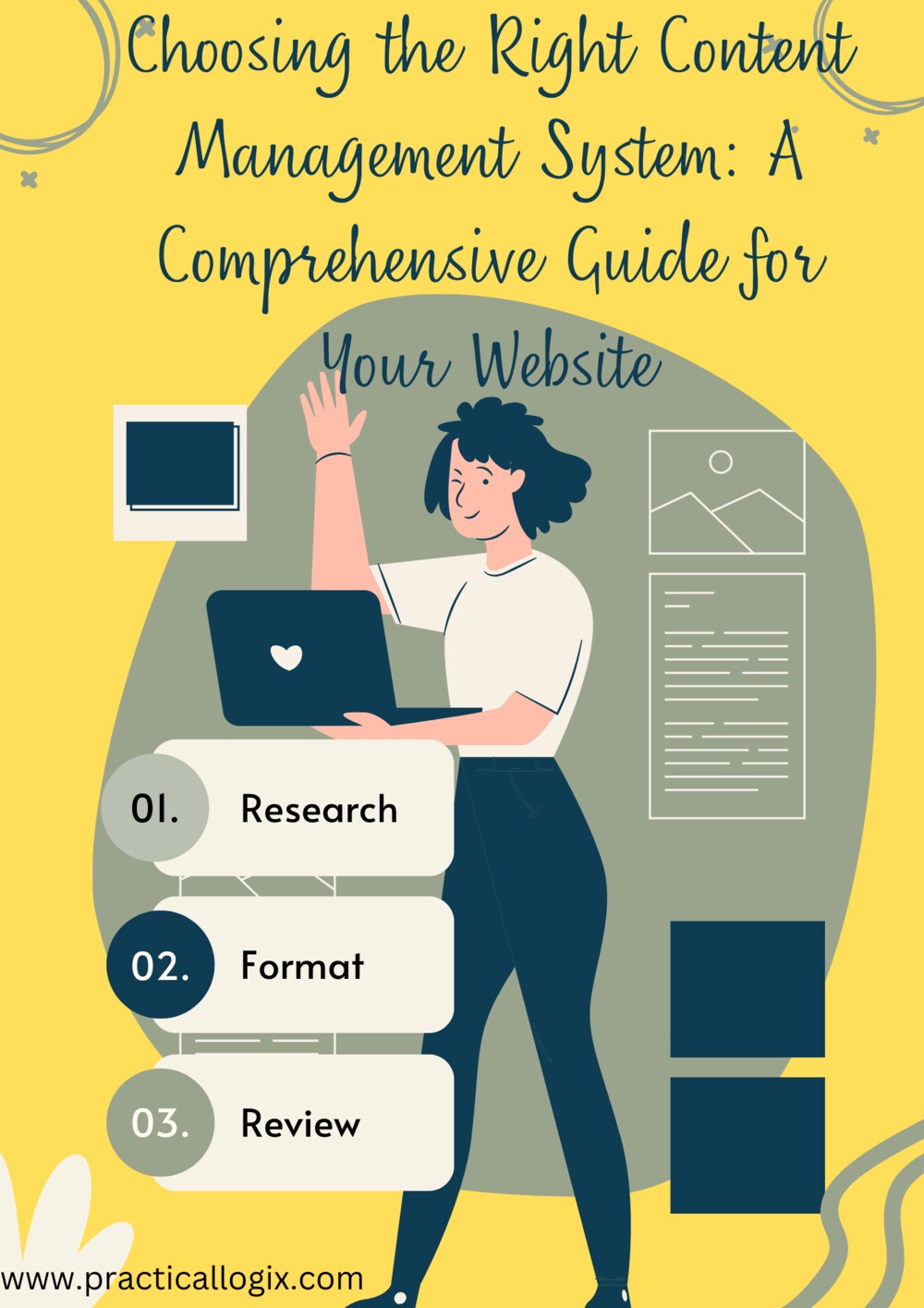In the digital era, a compelling and dynamic online presence is imperative for both businesses and individuals. A well-designed website acts as a virtual storefront, connecting you with your target audience and effectively conveying your brand message. At the core of every successful website lies a robust Content Management Systems (CMS) – a software platform that empowers you to efficiently create, manage, and publish content. With a plethora of CMS options available, selecting the most suitable one for your needs can be a daunting task. In this guide, we will provide you with an overview of the essential factors to consider when choosing the perfect CMS for your website.
- Define Your Website's Purpose and Goals:
Prior to exploring CMS options, it is crucial to establish the purpose and objectives of your website. Are you creating an e-commerce platform, a personal blog, a portfolio site, or a corporate website? Having a clear understanding of your website's primary functions will facilitate the process of narrowing down your choices and selecting a CMS that aligns with your vision.
- Ease of Use and User Interface:
When choosing a CMS, prioritizing user-friendliness is crucial. An interface that is easy to navigate and understand simplifies content creation, editing, and management, even for non-technical users. Opt for a CMS that provides an intuitive dashboard, drag-and-drop functionality, and a clear content editor to enhance your workflow efficiency.
- Scalability and Flexibility:
Take into account the long-term growth potential of your website. Opt for a CMS that can adapt to your evolving needs. Scalability guarantees that your CMS can manage growing traffic, additional pages, and new features without necessitating a complete overhaul.
- Customization and Design Options:
The design of your website plays a vital role in capturing visitors' attention and representing your brand identity. Consider choosing a CMS that provides a diverse selection of design templates or themes, which can be customized to align with your aesthetic preferences. The capability to create custom layouts and styles guarantees that your website stands out and reflects your distinctive brand image.
- Available Features and Functionality:
Various CMS platforms provide different features and functionalities. It is important to consider the specific tools and capabilities required for your website. Common features include SEO optimization, responsive design, social media integration, e-commerce support, multimedia handling, and blogging capabilities. Select a CMS that offers the necessary features to accomplish your website's objectives.
- Community and Support:
A flourishing community and dependable support are indispensable when collaborating with a CMS. Seek out platforms with engaged user communities, forums, and comprehensive documentation that can offer aid when facing obstacles or seeking guidance. Consistent updates, security patches, and accessible customer support all contribute to a streamlined website management experience.
- Security and Performance:
Ensuring website security is of utmost importance, particularly when handling sensitive user data or e-commerce transactions. Opt for a CMS that places a high priority on security measures and offers regular updates to address vulnerabilities. Additionally, evaluate the CMS's performance to guarantee fast loading times and a seamless user experience.
- Hosting Options:
Certain CMS platforms come bundled with their own hosting services, while others provide compatibility with multiple hosting providers. It is worth considering whether you prefer the convenience of an all-in-one solution or the flexibility to select your preferred hosting provider.
- Cost and Budget:
CMS platforms have diverse pricing models, with some offering free and open-source options, while others entail subscription fees or one-time payments. It is crucial to assess your budget and consider the total cost of ownership, including factors like licensing fees, hosting expenses, customization costs, and potential third-party integrations.
- Future Compatibility and Upgradability:
Technology advances at a rapid pace, necessitating the need for your website to stay ahead. Choose a CMS that receives regular updates and has a roadmap for future improvements and upgrades. A forward-thinking CMS guarantees the continued relevance and functionality of your website as the digital landscape evolves.
In conclusion, selecting the appropriate Content Management System is a crucial decision with a significant impact on the success of your website. By thoroughly evaluating factors such as the purpose of your website, user-friendliness, scalability, customization options, features, community support, security, performance, hosting, budget, and future compatibility, you can make an informed choice that aligns with your vision and enables you to establish a compelling online presence. Whether you are developing a personal blog or a complex e-commerce site, the right CMS will empower you to effectively manage and deliver content, delivering a memorable experience for your visitors.


No comments yet